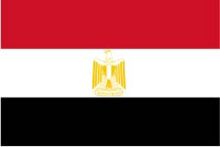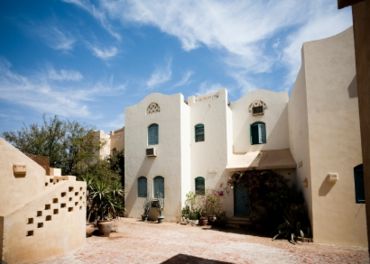Egypt Gift Giving Customs
From Giftypedia
- Flag of Egypt
- Capital: Cairo
- Official Language: Arabic
- Currency: Egyptian pounds
- Religion: Predominately Islam
- Government: Republic
Think of Egypt, and ancient civilization comes to mind complete with pharaohs, temples, deserts and pyramids. A prime location for earth's antiquities, Egypt is a country with lots to see and do, but there is a lot of etiquette to consider when traveling to Egypt. Egyptians are known to be a very religious people. Because many of their traditions are religious based, it is important to learn about Egyptian etiquette if you are planning a trip to Egypt. [1]
Gift Giving in Egypt
Gift giving in Egypt is evident throughout history. Idols and pyramids were built to house the pharaohs and filled with treasures. Gifts were given to kings in the medieval age to gain allegiance in a war or to gain personal favor. Typical gifts were of gold, silver and jewels – even herds of animals. Today, the tradition of gift giving continues in Egypt, especially during Egyptian holidays.
If you will be visiting an Egyptian home during your travels, here are some Egyptian etiquette tips to keep in mind:[2]
| Things to Know | Things to Avoid |
|---|---|
|
|
| Business Gift Giving | ||||
|---|---|---|---|---|
|
Business gift giving in Egypt is not common in the social setting, but is accepted as a gesture of thanks in the business relationship. If you have business in Egypt, expect a farewell gift on your last meeting.
|
| Religion and Gift Giving |
|---|
|
MuslimGift giving in Egypt is most prevalent during Egyptian holidays. The birthday of the Prophet Mohammed (Mouled Al-Nabi), is geared particularly toward children. The children receive candy gifts usually sold in open markets, although most are not allowed to eat them for hygienic reasons. Candy dolls are common for the girls and candy horses for the boys, both elaborately decorated with paper and beads. At the beginning of Ramadan, all children are given the gift of a lantern made of colored glass and tin. The children carry them out into the dusk to show them off. Because all children get the same gift, only the small children show much interest in the lanterns. The adults give gifts to the poor during Ramadan. The Feast of Breaking the Fast (Eid Al Fitr), the end of Ramadan, is celebrated by all Muslims. Children are traditionally given new clothes. During the 3 day feast, children are given cash from every adult they come in contact with. Wives commonly receive gifts of jewelry from their husbands. ChristianCoptic Christians (Egyptian Christians) celebrate Christmas on January 7. As in the West, children are the focus and are given new clothes to wear on Christmas Eve, January 6th. However, Egyptian children tend to show less excitement about toys received on Christmas Day. This is due to the fact that their gifts are often purchased at Christmas bazaars where profits go to charity, and the selection and quality is poor. Older children may receive small gifts of cash from extended family members and women generally receive gifts of clothing. [3] |
Related Pages
International Gift Customs
Egyptian Holidays
How to Avoid Controversial or Inappropriate Gifts
Etiquette for Office / Business Gift Giving
Middle East Gift Giving Customs







 Printer Friendly
Printer Friendly
